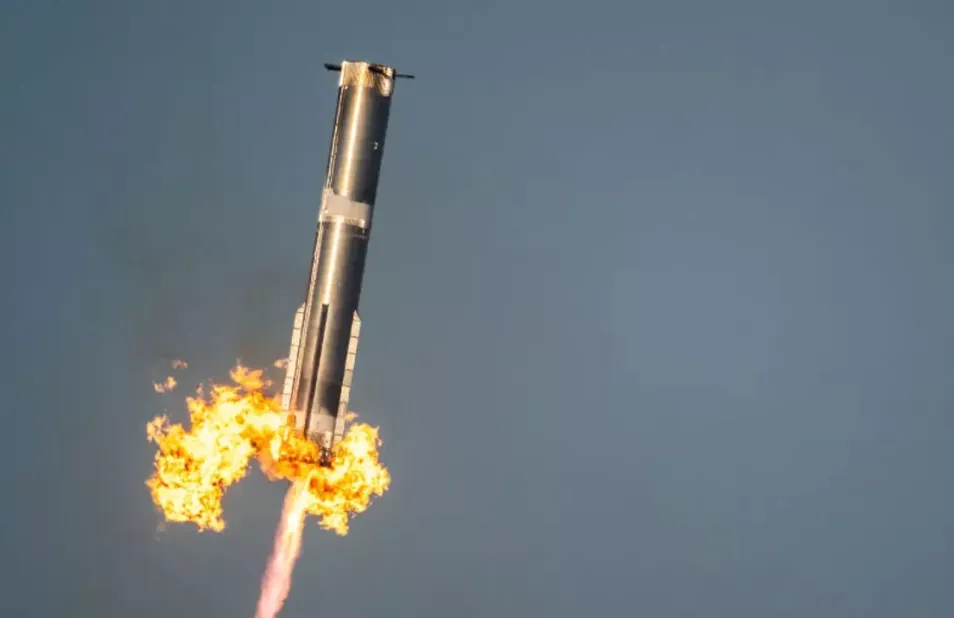SpaceX enthusiasts and aerospace experts worldwide were eagerly watching as the company geared up for another crucial test flight of its ambitious Starship spacecraft. This latest attempt was meant to further SpaceX’s long-term goal of establishing a sustainable human presence beyond Earth, with Mars being the ultimate destination.
The highly anticipated mission took place on March 6, 2025, at the Starbase facility in Boca Chica, Texas. Engineers had spent months analyzing data from previous flights, implementing refinements to the Starship system, and aiming for a flawless test.

With SpaceX CEO Elon Musk emphasizing rapid innovation, every mission plays a key role in fine-tuning the spacecraft’s performance.
The focus this time was on demonstrating Starship’s ability to deploy mock satellites, a significant step toward real-world payload missions.
A smooth countdown and liftoff saw the massive spacecraft ignite its 33 Raptor engines, pushing it skyward in what initially appeared to be a promising flight.
The first few minutes proceeded as planned, as the Super Heavy booster executed a textbook first-stage ascent.

As part of its mission profile, the booster shut down all but three of its engines approximately two and a half minutes into the flight.
This maneuver was meant to facilitate the hot-staging separation, after which Starship’s engines would take over to continue the climb.
With the transition appearing seamless, SpaceX engineers and viewers worldwide remained optimistic. The spacecraft was following its projected trajectory, and its engines performed as expected during the crucial boost phase.
The team on the ground closely monitored telemetry as Starship ascended higher, moving toward the edge of space.

The excitement surrounding the test flight was palpable, with many hoping this attempt would bring SpaceX one step closer to achieving its ambitious goals.
However, as the spacecraft moved deeper into its flight, unexpected anomalies began to surface. Moments before the ascent burn was set to conclude, several of Starship’s Raptor engines unexpectedly shut down, triggering an immediate shift in the vehicle’s stability.
The rapid loss of multiple engines compromised Starship’s attitude control, causing it to veer off its intended path.
SpaceX engineers worked quickly to assess the situation, but communication with the spacecraft was becoming increasingly unstable.

As ground control attempted to regain contact, Starship’s systems failed to respond, leading to an abrupt loss of telemetry. The spacecraft had reached a critical point in its test flight, and within seconds, all signals from the vehicle vanished.
What followed was a dramatic and unexpected event as Starship experienced what SpaceX refers to as a “rapid unscheduled disassembly.”
In simpler terms, the spacecraft exploded mid-air before it could reach its target altitude.
The failure had immediate repercussions, disrupting nearly 240 flights and temporarily grounding operations at major airports in Florida, including Miami and Orlando.

Debris from the spacecraft was spotted over the Bahamas, with social media users capturing footage of the remnants disintegrating in the sky.
Despite the setback, SpaceX remains committed to analyzing the failure, learning from it, and implementing improvements for future test flights.
As Musk has often stated, every failure provides invaluable lessons that push SpaceX closer to its goal of making space travel more reliable and sustainable.
Featured Image Credit: (Twitter)


